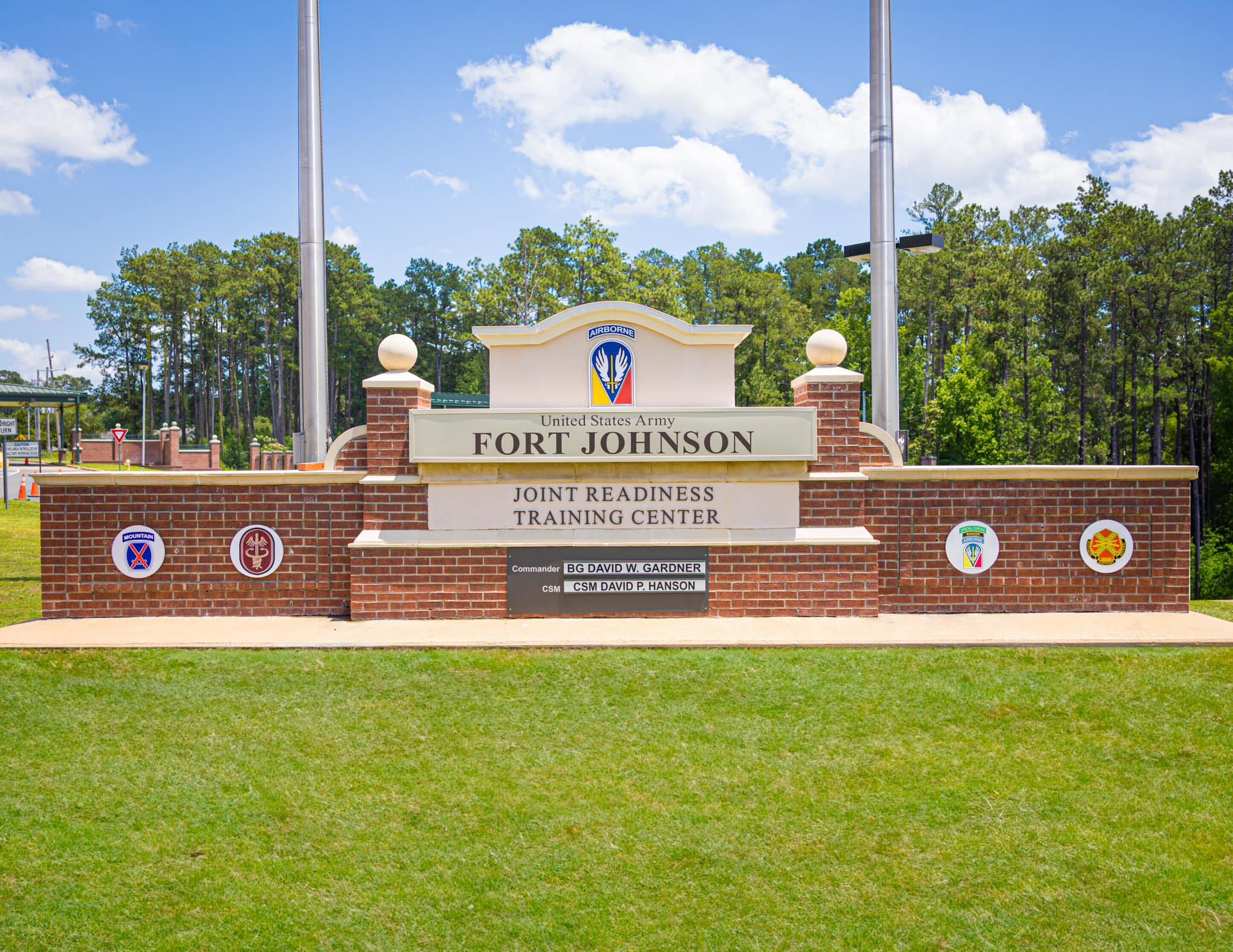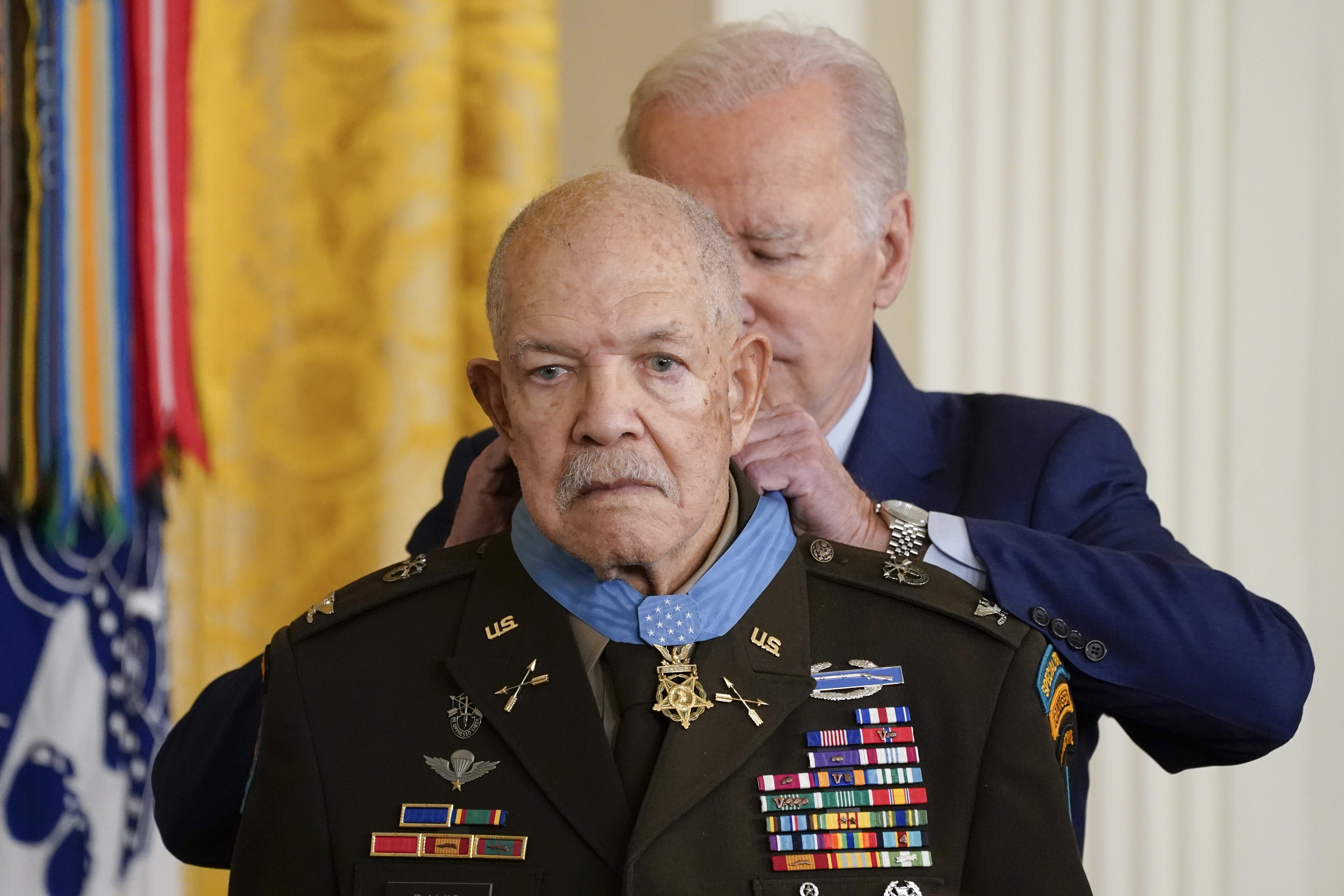
President Joe Biden on Wednesday awarded the Medal of Honor for conspicuous gallantry to two Union soldiers who stole a locomotive deep in Confederate territory during the Civil War and drove it north for 87 miles (140 kilometers) as they destroyed railroad tracks and telegraph lines.
U.S. Army Pvts. Philip G. Shadrach and George D. Wilson were captured by Confederates and executed by hanging. Biden recognized their courage 162 years later with the country's highest military decoration, calling the operation they joined “one of the most dangerous missions of the entire Civil War.”
“Every soldier who joined that mission was awarded the Medal of Honor except for two. Two soldiers who died because of that operation and never received this recognition," Biden said. “Today, we right that wrong.”
The posthumous recognition comes as the legacy of the Civil War, which killed more than 600,000 Union and Confederate service members between 1861 and 1865, continues to shape U.S. politics in a contentious election year in which issues of race, constitutional rights and presidential power are at the forefront.
Get top local stories in San Diego delivered to you every morning. >Sign up for NBC San Diego's News Headlines newsletter.
Biden has said that the Jan. 6, 2021, riot at the U.S. Capitol by supporters of Donald Trump was the greatest threat to democracy since the Civil War. Meanwhile, Trump, the presumptive Republican presidential nominee, riffed at a recent Pennsylvania rally about the Battle of Gettysburg and about the Confederate Gen. Robert E. Lee.
The president said Wednesday that Shadrach and Wilson were “fighting and even dying to preserve the union and the sacred values it was founded upon: freedom, justice, fairness, unity.”
“Phillip and George were willing to shed their blood to make these ideals real,” Biden said.
Theresa Chandler, the great-great-granddaughter of Wilson, recalled for The Associated Press how the Union soldier had the noose around his neck on the gallows and spoke his final words.
She said that Wilson essentially said that he was there to serve his country and had no ill feelings for the people of the South, but that he hoped for the abolition of slavery and for the nation to be united again.
“When I read that, I had chills,” Chandler said. “We can feel that as a family and that we’re enjoying our freedoms today, what he tried to move forward at the time.”
Brian Taylor, a great-great-great-nephew of Shadrach, said this was an opportunity for his ancestor to be remembered as “a brave soldier who did what he thought was right.”
“I kind of feel that he was a bit adventurous, a bit of a free spirit,” Taylor said.
Shadrach and Wilson are being recognized for participating in what became known as the Great Locomotive Chase.
A Kentucky-born civilian spy and scout named James J. Andrews put together a group of volunteers, including Shadrach and Wilson, to degrade the railway and telegraph lines used by Confederates in Chattanooga, Tennessee.
On April 12, 1862, 22 of the men in what was later called Andrews' Raiders met up in Marietta, Georgia, and hijacked a train named The General. The group tore up tracks and sliced through telegraph wires while taking the train north.
Confederate troops chased them, initially on foot and later by train. The Confederate troops eventually caught the group. Andrews and seven others were executed, while the others either escaped or remained prisoners of war.
The first Medal of Honor ever bestowed went to Pvt. Jacob Parrott, who participated in the locomotive hijacking and was beaten while imprisoned by the Confederacy.
The government later recognized 18 other participants who took part in the raid with the honor, but Shadrach and Wilson were excluded. They were later authorized to receive the medal as part of the fiscal 2008 National Defense Authorization Act.
Shadrach, born on Sept. 15, 1840, in Pennsylvania, was 21 years old when he volunteered for the mission. He was orphaned at a young age and left home in 1861 to enlist in an Ohio infantry regiment after the start of the Civil War.
Wilson was born in 1830 in Belmont County, Ohio. He worked as a journeyman shoemaker before the war and enlisted in an Ohio-based volunteer infantry in 1861.
The Walt Disney Corp. made a 1956 movie about the hijacking titled “The Great Locomotive Chase,” starring Fess Parker and Jeffrey Hunter. The 1926 silent film “The General,” starring Buster Keaton, was also based on the historic event.
__
Associated Press writer Will Weissert contributed to this report.



